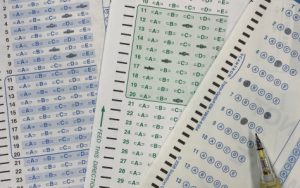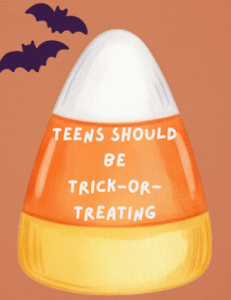Testing, testing… does the new test schedule get a pass or a fail?
The new testing schedule has been in play for a full semester
Jan 17, 2023
Earlier in 2022-2023, MHS introduced a new summative testing schedule. Over summer break, McIntosh Principal Maggie Walls sent parents and students an email regarding the new testing schedule.
The schedule includes Mondays having no summative tests for any classes. On Tuesday and Thursday, students can expect potential summative assignments from History, Math, Career Technical Education (CTE), PE or Health. Finally, on Wednesdays and Fridays Fine Arts, English, Science and World Language classes are allowed to have tests.
“Now that the schedule has been around for about a semester, I have mixed feelings about it. While I do like the concept of knowing when we will and will not have a test in a specific class, it makes it hard for test rescheduling,” Anslie Harrell, a McIntosh junior, said. “For instance, sometimes tests get pushed back a couple of days instead of just pushing it to the next day.”
The concept behind this schedule is to allow students a lower level of stress. Before McIntosh started with differentiation between testing days, students had four and sometimes more tests on the same day. This was seen as potentially causing stress. Some students have liked the new change.
“For me, it helps me plan out my schedule more and not have to worry about tests on different days. A bunch of tests on the same day puts a lot of stress on me, but it helps to know that I can prepare for all of it and get it all over with,” freshman Leo Gil said.
Some teachers have had to reshape how they structure the course they teach to accommodate this new testing schedule.
“In my AP class, not as much, although there have been a couple of units where we’ve started a new unit before we’ve tested. I would say it affects my ninth graders more. I have a ninth-grade collaborative class, so I have students who have IEPs and lots of modifications,” Stephanie Sisk, a McIntosh science teacher said. “There have been multiple tests where we have had to stop and move on to a new unit, and then test them after and that has not been good. Not good for them. So, I would say it affects the students who need more help more than the students who need less help overall.”
Other students agree with Gil about the decrease in the amount of stress they have been feeling throughout the semester with the new schedule.
“The testing schedule helps to eliminate having multiple tests a day which is really helpful overall. It really helped me become less stressed and pressured,” junior Anna Zhou said.
Teachers have also commented on if they have seen a decrease in the amount of stress in their students.
“I have not [seen a decrease] but I haven’t really asked about it. I know I do have AP students who are taking multiple sciences. That doesn’t happen in ninth grade, but it does happen in AP. I know it tends to be detrimental if you’re taking multiples.” Sisk said.
Some students have not felt any effect or change with the new schedule and have no preference.
“Overall, the testing schedule has had a pretty neutral effect on me. I guess it gives a little less stress knowing when a test will be exactly, but it really depends on the class and where we are. In the end, it really [kind of] causes either cramming for an early test day or having to come back to the topic another time when we are able to take the test if it gets pushed,” Harrell said.
Sisk gave further insight into the testing schedule.
“I think we need to scientifically collect data about who it’s helping and whether it’s helping. Instead of just anecdotally saying, ‘Do you like it?’ So I think we actually need to collect it now, and give information back and see if it works because I don’t mind doing it if it works. My guess would be that it’s helping certain subsets of students and maybe hurting others,” Sisk said.







